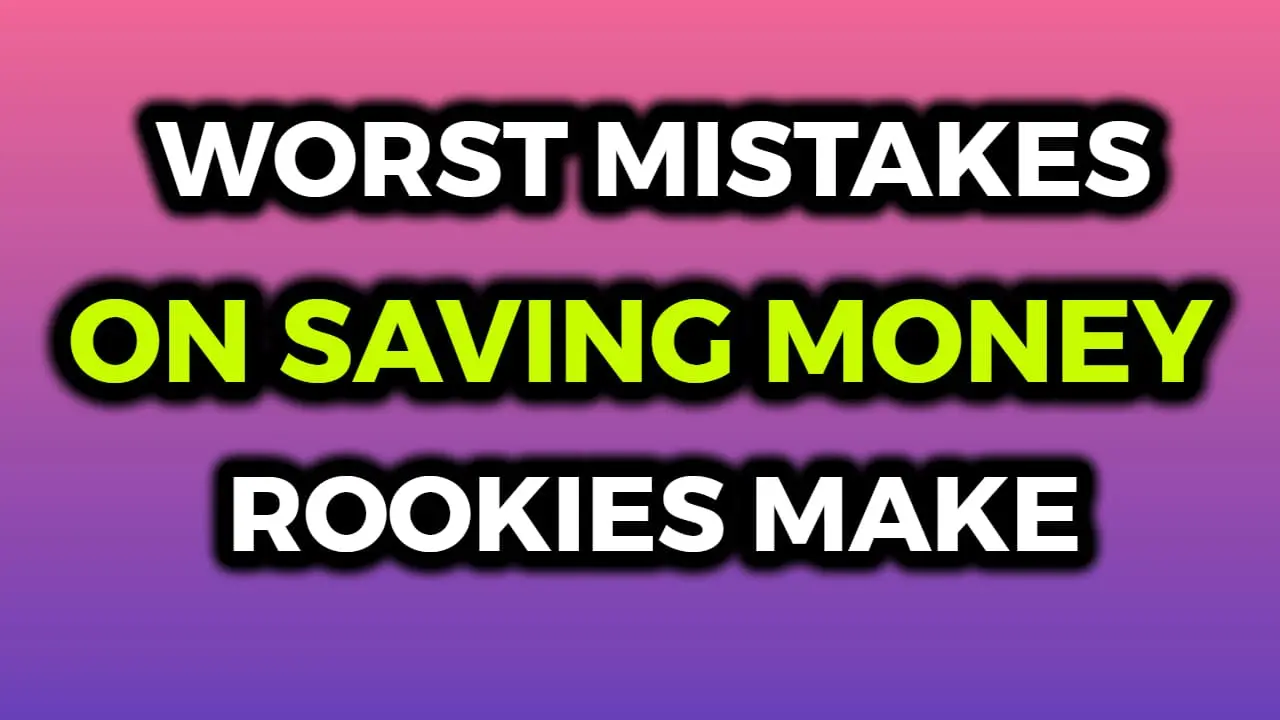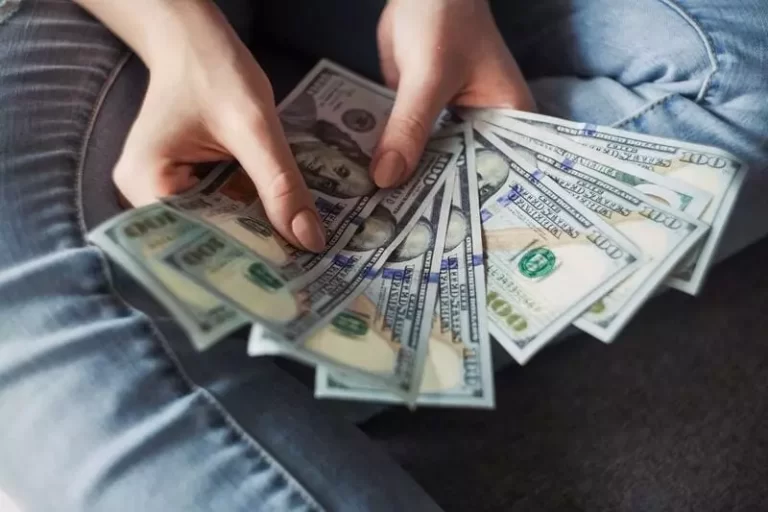The Worst Mistakes On Saving Money to Achieve Something Rookies Make

If you want to make job replacing income and want to work online from the comfort of your home or anywhere in the world
Take a look at this - Live Chat Jobs
Saving money is one of the most important things you can do for yourself, but it’s also one of the most difficult things. You might be motivated by wanting to have enough money at retirement to live comfortably or by wanting to save up for a big splurge. But what if instead of focusing on those big dreams, you just focused on getting started with saving money? Here are some common mistakes rookies make when starting out:
Spending Large Amounts Of Your First Fortune.
This is a mistake that many beginners make, and it’s especially common when you’re just starting out. Your first big purchase should be something that you need—like a car or house—not something that will make you happy or memorable. If you buy something because it makes you feel good about yourself, then there’s a good chance that feeling won’t last long once the novelty wears off. But if what makes me happy now will also be useful in the future, then I’m going to spend money on it instead.
Not Having Specific Goals To Save For.
You may have heard that it’s important to set goals before you start saving money. But what does that mean exactly? It means not only that you should write down your goals, but also how much money will be required for them and when they are expected to be achieved.
If your goal is “I want a new car”, then having a plan for how long it will take and how much money will be needed would make sense. But if instead of writing down specific financial goals (like “I want a new car”), you just say “I want more money,” then no one knows what kind of budget or timeframe would work best for achieving those things!
Do not worry about other people’s budgets—just focus on yours!
Not Making The Time To Track and Control Money Spending.
You’ll want to track your spending so that you can see how much money is going toward what. You can use a budgeting app or simply write down each purchase and how much it costs. This will help you understand where the money is going, which in turn will help with setting priorities for future purchases.
Not Reviewing Accounts For Fraud or Mistakes.
As a newbie to saving money, you should be checking your bank account and credit report regularly. This will help ensure that you don’t make any mistakes that could cost you thousands of dollars.
Here’s what else to look out for:
Never give out your credit card number over the phone unless absolutely necessary – it’s just too easy for scammers to get hold of this information without having been asked for it first!
Only Sticking With What You Know.
The biggest mistake I see rookies make is only sticking with what they know. It can be tempting to stick to your comfort zone and continue doing the same things, but it’s important for you to challenge yourself and try new things as well. If there’s something that makes you uncomfortable, don’t be afraid of trying it out! The worst thing that could happen is that you don’t like it—but if something helps your business grow, then maybe next time will be better!
You should also never feel ashamed when asking for help from others; everyone needs outside perspectives sometimes (even if they’re just ones friends). The key here is listening without judgment or expectations of reciprocation – which means being open-minded when someone asks questions about their work culture rather than giving advice based purely off what might benefit them (and not necessarily yours).
Using Coupons Without A Plan
Coupons are a great way to save money.
However, many people use coupons without a plan in mind. They may not know how much they can afford to spend on items and services each month, or if the coupon will be worth it for them. If you’re using coupons as part of your budgeting strategy, here are some things that rookies do:
- They don’t know how much something costs before buying it (if anything). This makes them open up their wallets when no one has asked for anything yet! It’s like going into Wal-Mart without looking at the price tags on everything in sight because there could always be another sale somewhere down the line…and then you end up spending more than what was originally planned.
Buying On Credit
Buying on credit is a big mistake. Credit cards can help you buy more than you can afford, but they also come with a high interest rate and additional fees. You don’t want to be in debt for years, or even decades!
If it’s not possible for you to pay off your credit card balances every month (in which case the best thing to do is try and stop using them altogether), then at least try not buying things that are too expensive if at all possible; this will keep from putting yourself deeper into trouble when it comes time for paying off loans or other debts later down the line.
Eating Out Often
Eating out is expensive. It’s not that it’s bad, but you can easily eat healthier and save money by cooking at home. If you’re only going to eat out once a week or less, consider cooking something yourself instead of getting takeout every night. You can learn how to make healthy meals in a short amount of time—and if you have time on your hands between work and other obligations, why not make some extra money while improving your health and saving some money?
The best way to save money is by learning how to cook fast food! The best part is that there are plenty of resources available online that will teach you everything from scratch (or close enough). All the recipes are easy enough for anyone who knows how basic ingredients work together – so there’s no reason not get started today!
Going On Vacation Without A Plan.
Planning ahead is a great way to save money and make sure you’re able to enjoy your vacation.
Planning ahead can help you avoid last minute decisions, which are usually the most expensive ones. If you plan ahead, it’s less likely that those unexpected expenses will creep up on you when they do happen—and even if they do come up unexpectedly, there’s still time for some quick thinking and preparation before the situation reaches crisis proportions.
Planning also helps prevent stress from getting exacerbated by difficult situations; in addition to helping save money by reducing costs associated with last minute travel booking fees or trying out new accommodations after discovering that a hotel has been sold out at peak season (which happens all too often), planning allows us all more time for relaxation so we don’t feel rushed into making snap decisions about our vacation plans.*
Saving money can help you learn how to be more thoughtful about how you use your time and money.
Saving money is a skill. You need to learn how to save money and then practice it. This can take time and effort, but once you get better at it, your life will be easier.
The first step in saving money is being more thoughtful about how much you spend on things like food or entertainment every month (or week). If there’s something that costs 20/month but doesn’t make you happy as much as other things do, then it may not be worth paying for.
Conclusion
You don’t need to wait until retirement to save money. Even if you live paycheck-to-paycheck, there are ways you can save money every day. Whether it’s making your own meals, buying in bulk or cutting back on spending when possible, we hope these tips have helped you get started on the road toward more thoughtful spending habits.





